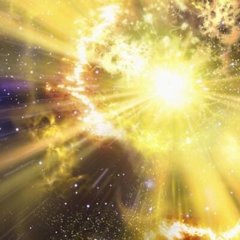-
Content count
4,388 -
Joined
-
Last visited
-
Days Won
32
Everything posted by Cobie
-
-
-
~~~<>~~~ 萬 and 2nd 有 ~~~<>~~~ line 3-4 Wang Bi: 天 下 萬 物 生 於 有, 有 生 於 無 。 MWD B : 天 下 之 物 生 於 有, 有 __ 於 无 。 Henricks G: 天 下 之 勿(物)生 於 又(有), 生 於 亡。 DIO link G: 天 下 之 物 生 於 有, 生 於 亡。
-
~~~<>~~~ 於 yu2 ~~~<>~~~ Kroll (page 567): “(grammatical particle) … indicating any indirect or locative relation: in, at, from, to, on, with regard to, vis-a-vis, etc.; …”
-
~~~<>~~~ absence of 也 and 之 ~~~<>~~~ line 1-2 Wang Bi: 1. 反 [- -] 者,道 之 動 [- -];2. 弱 [- -]者 道 之 用 [- -] 。 MWD B : 1. 反 也 者,道 之 動 也; 2. — — 者 道 之 用 也 。 Henricks G: 1. 返 也 者,道〈之〉僮(动)也;2. 溺(弱)也 者 道 之 用 也 。 DIO link G: 1. 返 也 者,道 [- -] 僮 也;2. 弱 也 者 道 之 用 也 。 ~~~<>~~~ 也 and 之 as grammatical particles ~~~<>~~~ See Kroll, page 538 for 也; page 603 for 之 . (I seem to remember Henricks said the following somewhere, can’t find it back now) the received text lacks many grammatical particles which are preserved in the older Mawangdui, which permit the text to be more precise. Van Norden says it’s common in the Wang Bi DDJ to drop the final 也 ye3 (page 82).
-
~~~<>~~~ 无 and 無 ~~~<>~~~ Kroll (page 480): 无 wu2 “… graphically interchangeable with …無 wu2 。 ~~~<>~~~ 僮 and 動 ~~~<>~~~ Wang Bi, MWD B: 動 dong4 Henricks G, DIO G: 僮 tong2 Henricks says the modern equivalent of 僮 is 動 (page 78, his Guodian book). ~~~<>~~~ 溺 and 弱 ~~~<>~~~ Wang Bi, DIO G: : 弱 MWD B - - , Henricks G: 溺 ni4 (弱)ruo4 Henricks says the modern equivalent of 溺 is 弱 (page 78, his Guodian book). [There was a big thread on 溺 vs 弱 on OD, my conclusion at the time was that it made no difference which one was used.]
-
Henricks says the modern equivalent of 返 is 反 (page 78, his Guodian book).
-
Your characters are different from the bamboo characters transcription that are on http://www.daoisopen.com/A18toA20Chapters44409.html your chars: 返 [ - - ] 者 道 動 也; 弱 [ - - ] 者 道 之 用 也。 天 下 萬 物 生 於 有, 有 生 於 亡 on the link: 返 也 者, 道 僮 也。 弱 也 者, 道 之 用 也。 天 下 之 物 生 於 有,[ - - ] 生 於 亡。
-
@Daniel Dao is open has the Ch. 40 bamboo slips characters, they’re in the left most column (the second column gives the transcriptions): http://www.daoisopen.com/A18toA20Chapters44409.html
-
All correct. The Henricks Guodian book gives both a “Transcription” and a “Modern Equivalents”. https://www.amazon.com/Lao-Tzus-Tao-Ching-Translations/dp/0231118171
-
Welcome to the forum.
-
Welcome to the forum.
-
Welcome to the forum.
-
Welcome to the forum .
- 1 reply
-
- 1
-

-
.
-
I agree. @dwai my sincere apologies for going so off topic. If you would like to, it would be great if this whole discussion could be split off and moved to my PPD, starting from this post:
-
.
-
@Eduardo thanks for your ‘like’.
-
better find out for yourself.
-
Ch. 40 is in the Hendricks MWD, it comes after Ch. 41 . Henricks also has a Ch. 40 in his book on the Guodian https://www.amazon.com/Lao-Tzus-Tao-Ching-Translations/dp/0231118171 His Guodian Ch. 40 is also on https://terebess.hu/english/tao/henricks2.html#Kap40 : 40 返也者, 道〈之〉僮(动)也。 溺(弱)也者, 道之用也。 天下之勿(物)生於又(有), 生於亡。
-
no I am not saying anything



